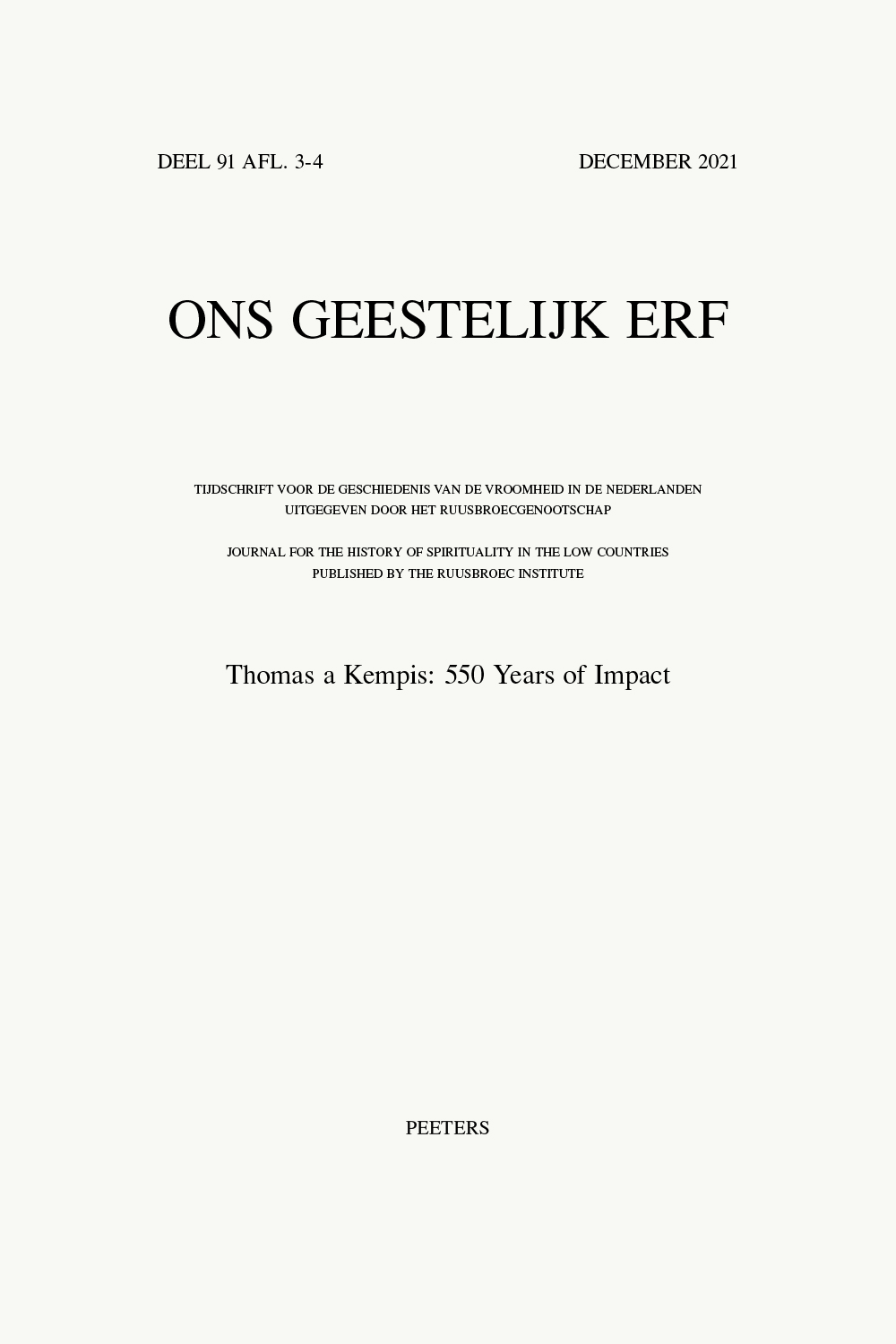next article in this issue  |

Preview first page |
Document Details : Title: 'Hadewid Greca' te Merksem in 1212 Subtitle: Een historische reconstructie van de biografie van Hadewijch Author(s): DEVREESE, Daniel Journal: Ons Geestelijk Erf Volume: 81 Issue: 2-3 Date: Juni-September 2010 Pages: 151-193 DOI: 10.2143/OGE.81.2.2053915 Abstract : This article proposes a theory about the biography of the mystic poet Hadewijch based on a new historical document and in relation with a historical analysis of her List of Perfects. In a charter from 1212 between Lord Godfried II of Breda and abott Konrad von Urach of the Cistercian abbey of Villers, a woman called ‘Hadewid Greca’ is assigned to the familia of the abbot. Is ‘Hadewid Greca’ the mystic poet Hadewijch? This can be demonstrated by means of a threefold analysis. 1. Against the fictionalisation of the List of Perfects by some philologists, this list is analyzed by means of a new criterium, i.e. the chronology of the significant event in the life of each Perfect. The redaction of the List of Perfects must be situated between 1236 and 1244: between the death of the beguine at Cambrai in 1236 and the fall of Jerusalem in 1244 with the murder on the hermits. At the core of the List of Perfects a biographical configuration becomes apparent with at the one hand Konrad von Urach, magister Hendrik of Breda and his mother Lutgardis, and at the other hand a cluster of visionary women: Lady Oda von Heinsberg, the beguine Helsewent at the domain of Perk near Vilvoorde and Hildegard von Bingen. The chronological shift of Hildegard von Bingen (1098-1179) in the List of Perfects is motivated by her process of canonisation in 1233. 2. From the historical-critical analysis of the charter it appears that Hadewid Greca lived in 1212 as a recluse at the domain of Godfried II of Breda, the husband of Lutgardis of Perk. Her birth around 1187 can be deduced but the theory about her noble origins is not confirmed. The epithet ‘Greca’ points at her place of birth, the domain Hof van Grieken at Zoutleeuw, where in 1207 a group of ‘mulieres religiosae’ lived, amongst them also the young Beatrijs of Nazareth. 3. Against the second theory of P.C. Boeren, Lord Hendrik of Breda in the List of Perfects who, by order of Hadewijch, was sent to a recluse in Saxony, was not Hendrik IV of Breda (1218-1254) but his uncle, the magister and priest Hendrik of Breda (1180-1250), the third son of Lutgardis of Perk, who between 1222-1233 had a church-office in Saxony. The thesis by Faesen that Hadewijch has been the first prioress Hawidis/Heilwich of the Cistercian monastery of Hertogendaal (Leuven, 1230) remains possible, although that religious order had no part in the transmission of her work. The genealogy of the Lords of Breda and of the Lords of Kuyc points at the charterhouse of Zelem (Diest) as the origin of the reception of Hadewijch’s works through the gift of a manuscript by Otto of Kuyc at the occasion of his marriage in 1337 with the foundress of that charterhouse (1329). |
|


